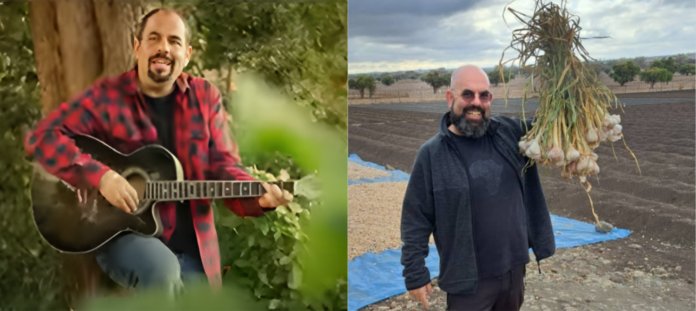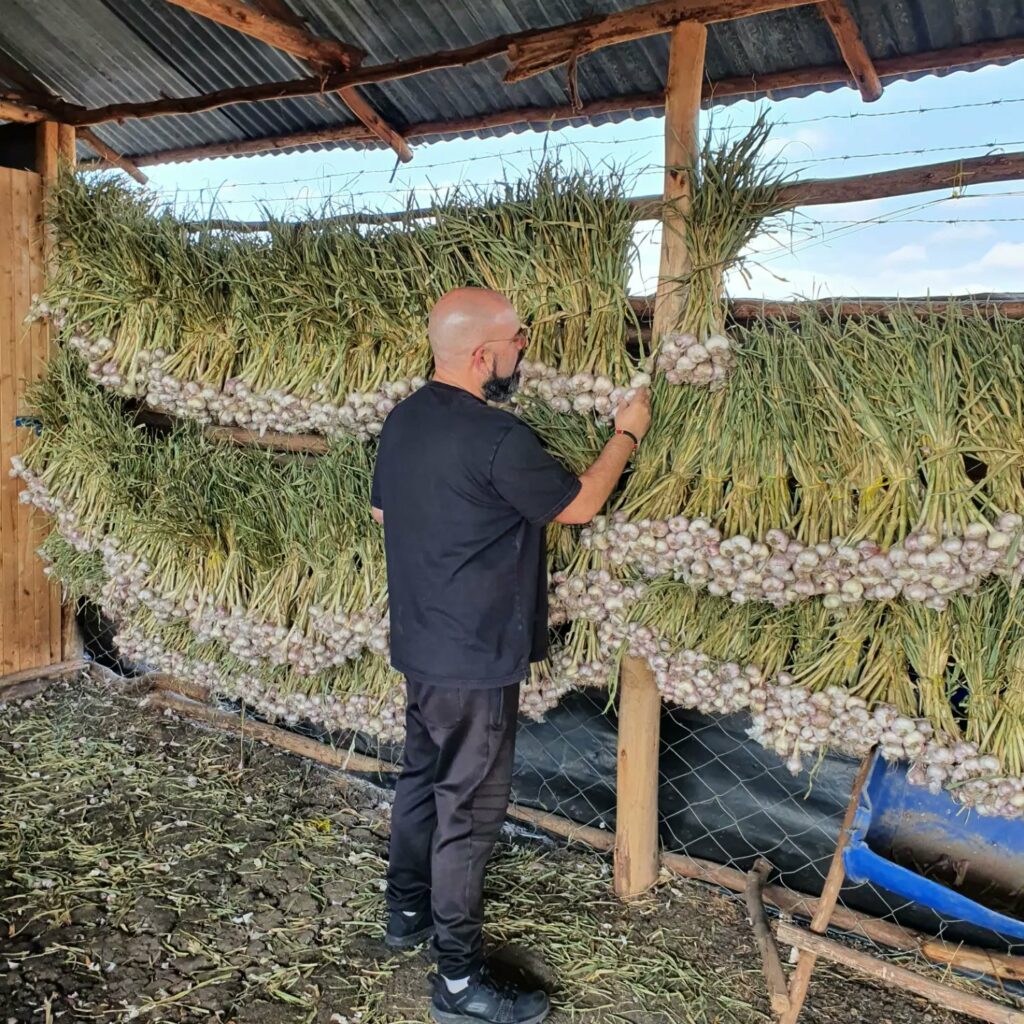The name Gilad brings back fond memories of the mid-2010s when the celebrated musician dropped a bomb music song, ‘Unajua’, featuring Wendy Kimani. The song has close to 9 million YouTube views.
What surprised most Kenyans was Gilad’s mastery of the Swahili language, to the point of singing a love song, despite being an Israeli foreigner.
After 21 years of being in Kenya, in 2021, the musician celebrated after finally attaining Kenyan citizenship. The former Israeli diplomat was proudly welcomed by his fans and fellow celebrities.
Gilad Milo likes to describe himself as a jack of all trades. He firmly believes that no one was born to specialise in a single field of work.
Gilad has worked as a Diplomat for the Israeli embassy in Kenya, Israeli TV Journalist, Public Relations and Communications expert, Musician, and garlic farmer.
“You were not born to do one thing. The world is yours to explore and experience. You’re not stuck in what you’re currently doing; believe me, you’re doing exactly what you are supposed to be doing right now,” he noted.
Gilad is the founder of Milo Communications, his PR agency. His firm deals with social media communication, creating campaign strategies and other tools to amplify strength.
“I am a singer, musician and Public Relations expert. I have a PR agency,” he said.
Gilad’s zeal and determination show that he is an open-minded guy ready to walk along any avenue of a good opportunity.
Gilad’s Ole Raha Farm
The celebrated musician boasts a four-acre garlic farm in Isinya, Kajiado County. In an interview with Citizen TV, Gilad revealed that he ventured into garlic farming just before the Covid-19 pandemic hit Kenya in 2020.
“Just before COVID-19, an opportunity came, and a friend said let’s do something together and it aligned with the period. It was perfect. While everybody was locked in their houses during the lockdown, we were out here in nature, breathing fresh air and enjoying farm life,” he reminisced.
He established Ole Raha garlic farm with his friends, and he has had more than three harvest seasons.
READ: How I made Sh4.8 million from garlic farming in Kenya
Gilad also noted that he’d been around agriculture for nearly ten years while in Kenya but had never decided to give it a go.
He and his partners have planted two varieties of garlic on their 4-acre farm. The Rwanda giant and the African giant. He also said that he’s worked with the Arusha garlic, and the returns were excellent.
According to the ‘Sema Milele’ hitmaker, paying attention to the nitty-gritty details is paramount for one to be a successful farmer.
Garlic grows well in an area with plenty of sunshine and adequate water, especially in the first two months.
“The secret of growing successful garlic begins with the cloves you plant. That is where most farmers mess up, the plant cloves that are not ready, so they spend a month underground,” he said.
Gilad ensures that he uses mature seed garlic to ensure the plants germinate within a short period, typically four months.
To counter pests and diseases such as red ants who may occasionally eat garlic leaves and hamper the farm’s production, Gilad says he has to scout the farm and spray pesticides regularly.
“Be present on the farm. My partners and I are here almost all the time. We visit all the time; we live and breathe what’s happening here,” he stated.
While accepting that garlic farming is demanding, he notes that it is risk averse in terms of getting ready market. Gilad divulged that he’s been able to sell all his produce here in Kenya without crossing international borders.
“So far, we’ve sold everything we’ve got our hands on. We haven’t had any problem selling; there is enough demand,” said Gilad.
“We haven’t encountered challenges in the market; the Kenyan market absorbs good quality garlic,” he added.
As a parting shot to those wishing to venture into garlic farming, Gilad revealed that an acre of the farm would cost between Sh. 300,000-Sh. 350,000. The most expensive input is the drip irrigation that goes for Sh. 160,000.
However, the harvest is superabundant and rich in cash. Garlic in the Kenyan market costs around Sh. 289.6 per Kilogram. The average price of a tonne is Sh. 335,000 ($2,664.593) in Mombasa and Nairobi, the heaviest garlic consumers.
Suppose each acre gives him at least 1 tonne; this means the musician could be reaping more than Sh. 1.2 million from his Ole Raha farm each harvest season.
Gilad has employed many Kenyans directly and indirectly. In the future, Gilad looks to invest in producing garlic paste and garlic seeds for farmers.










